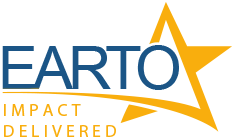29 / 05 / 2020
EARTO Press Release – Call for a Swift MFF Agreement Ensuring Ambitious EU RD&I Investments
The European Commission (EC) has now disclosed its proposal for a European Recovery Plan, “Next Generation EU”, and a revised Multiannual Financial Framework (MFF). As stated in the EARTO Paper on the EU Economic Recovery Package, the EARTO policy recommendations and Joint Statement with 90+ key European industrial associations, EARTO has repeatedly called for a timely agreement on a future-oriented MFF at the level of EU’s ambitions. At the edge of a deep economic recession, Europe requires now more than ever a future oriented MFF with clear and ambitious commitments to prioritise Research, Development and Innovation (RD&I) investments. Europe’s technological excellence will be the decisive strategic factor to tackle the crisis and ensure Europe’s economic recovery, rebuilding its industrial competitiveness, and safeguarding its long-term prosperity. The focus on green and digital transitions is today essential to strengthen Europe’s strategic value chains and ecosystems, and to boost the resilience of our societies in the long run. With EU private RD&I investments reducing, strong commitments of public RD&I investments at EU, national and regional levels are key: as stated in the EC SRIP report, it is high time to make the EU 3% target of GDP investment in R&D a reality. In this context, EARTO can only welcome the EC proposal to add €13.5bn funding to the Horizon Europe programme compared to the European Council President proposal from February. Even if channelled through the temporary recovery scheme Next Generation EU and not in the MFF directly, it is a step in the right direction. However, the total figure of €94.4bn remains far below the European Parliament €120bn proposal, which was already much needed before the crisis. Accordingly, EARTO puts forward the following recommendations:- The total Horizon Europe funding should be ring-fenced to preserve it from any spending cuts for the whole duration of the MFF.
- Grants should be the main form of funding in Horizon Europe: this is essential for the programme to deliver the intended impact, boosting high-risk pre-competitive RD&I and stimulating private sector’s access to technology.
- The Next Generation EU funding earmarked for Horizon Europe should be deployed to fund medium-term strategic collaborative RD&I projects under Horizon Europe pillar 2. This pillar 2 should receive a share of at least 60% of the total Horizon Europe budget, as it is essential to turn promising basic research results into technologies with industrial maturity, reducing the risk and uncertainty of private RD&I investments. As the RD&I arm of the EU Green Deal and key enabler of the digital transition, this pillar will also be crucial for Europe’s recovery.
- The €8.2bn budget for the Digital Europe programme is not fitting the EC ambitions to achieve the digital transition needed in many ecosystems, which is also key to reach the Green Deal targets.
- EARTO regrets the proposed cuts for the European Space programme and the European Defence programme.
- The Interreg Component 5 for Interregional Innovation Investments should be adequately funded to reach its expected impact.
- The new grant-based standalone Health programme should focus on creating a comprehensive framework for Europe to be better prepared to tackle future health crises.
- The new Recovery & Resilience Facility supporting Member States’ investments to improve their social and economic resilience should include earmarked RD&I investments to achieve the targets set by the EU Green Deal and the digital transition.

